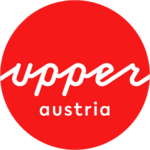Ina Regen:
Mother tongue:
Dialect.
Ina Regen: “I’m an Upper Austrian, my soul is European and I live in Vienna”
Within a very short space of time, Ina Regen has shot from backing vocalist to celebrated solo artist. Her albums invariably rise quickly to number one in the album charts. In our interview, the singer talks about the cultural scene in her native Upper Austria, the appeal of the stage and places she draws strength from around Lake Mondsee.
You sing in dialect – is it a better way to express yourself than using standard German?
Dialect is my mother tongue. My very first words, thoughts and feelings began in dialect. All my life, I have used dialect to express everything that makes me who I am. So it’s natural to feel this sense of immediacy in music and lyrics as well. When you look at it like that, standard German is almost like a foreign language to me. This primal faculty within me is the great power that comes out in my work. At some point, the dialect told me I had no other choice.
That ties in with something you’ve said: “I won’t compromise myself”. What do you mean by that?
I had an experience that has gradually evolved into a realisation: you can’t lie to yourself. Sometimes we try out versions of ourselves that we think we ought to be. But ultimately you realise – more and more quickly as time goes by – that you have to be honest with yourself. And that means not compromising. It’s a gradual process, and one that takes patience. But I think it’s important to look right into your soul once in a while and ask yourself “Who are you? Who would you like to be? How far apart are those two things?” For me it’s clear – I want to be me. Because everyone else is already spoken for ...
Your breakthrough came with “Wia a Kind”. Our childhood never really leaves us – what was yours like?
I had a typical childhood in the country with traditional Austrian home-cooked food and plenty of freedom. When I think back to it, I think of nature and my grandparents’ farm. We were fed and cared for, but not constantly supervised. There were moments of loneliness and boredom as well though, and in those moments of boredom, music quickly found a place – one that it still occupies today. My parents passed on their values to me and helped me to get a good education, and I am very grateful for that.
With “Heast es net”, you and Conchita Wurst covered one of Austria’s musical legends. What’s your relationship with Hubert von Goisern like?
Our connection is one of appreciation on every level. Sadly, we’ve only actually met once, but my impression was that we have a great deal of mutual respect. Hubert and I only got to know each other one and a half years after our cover of “Heast es net” came out. Hubert came to the sound check for one of my concerts because he wanted to meet me. If that’s not a musical accolade, I don’t know what is! Conchita and I had no idea when we were making the song that the Austrian people would consider it such sacrilege for “drag queen” Wurst and “who on earth is she?” Ina Regen to cover a musical legend. But Hubert’s reaction was “Go with the flow – art doesn’t belong to anyone but itself.” So hopefully the rest of Austria has made peace with it as well.
Talking of “art doesn’t belong to anyone but itself” – what’s Upper Austria’s art and culture scene like?
Upper Austria has a very colourful cultural scene. It includes choirs and brass band music as well as highbrow performances at Linz Musiktheater. The Landesmusikschulwerk, which coordinates and oversees music education in Upper Austria, is unique worldwide. And the POP BORG in Linz is a musical training ground that has already produced a number of greats, including Parov Stelar, Leyya and Folkshilfe. It’s astonishing how many careers are launched in Linz these days. I think Upper Austria is much more vibrant culturally than it realises. The brass music scene doesn’t know how great the punk scene is, and the musical theatre scene knows very little about the jazz or indie scene, for example. It would be lovely if we could stop the compartmentalisation and hierarchies. And if it could all just be Upper Austrian.
While we’re on the subject of Linz: you studied here, didn’t you?
Yes, although initially I was commuting to study at Bruckner University. At that time, the Musiktheater was still under development, but we knew it would be built at some point. And today we’re doing the interview here. The architecture is very bold. I find that theatres and stages in general have a very special kind of energy and appeal. I feel right at home in these places. Just like being in my living room. I often used to run and walk in the park by the Danube near the Brucknerhaus.
Are there other places in Upper Austria that you draw strength from?
On my album “røt” there’s a song called “Wievü”. It’s about all those little precious moments that you sometimes don’t even notice at the time, and it’s only afterwards that you think, “that was THE moment of the summer” or “that is the moment that sums up our friendship”. The first verse is set on the Drachenwand rock face that towers over Lake Mondsee. It’s a place I love to be, especially because my brother lives there. In general, the place I most like to draw strength from is anywhere where I have people around me who feel like family to me. I’m an Upper Austrian, my soul is European and I live in Vienna. But I don’t have a fixed idea of “home”, and I’m constantly rediscovering what the word means to me.
